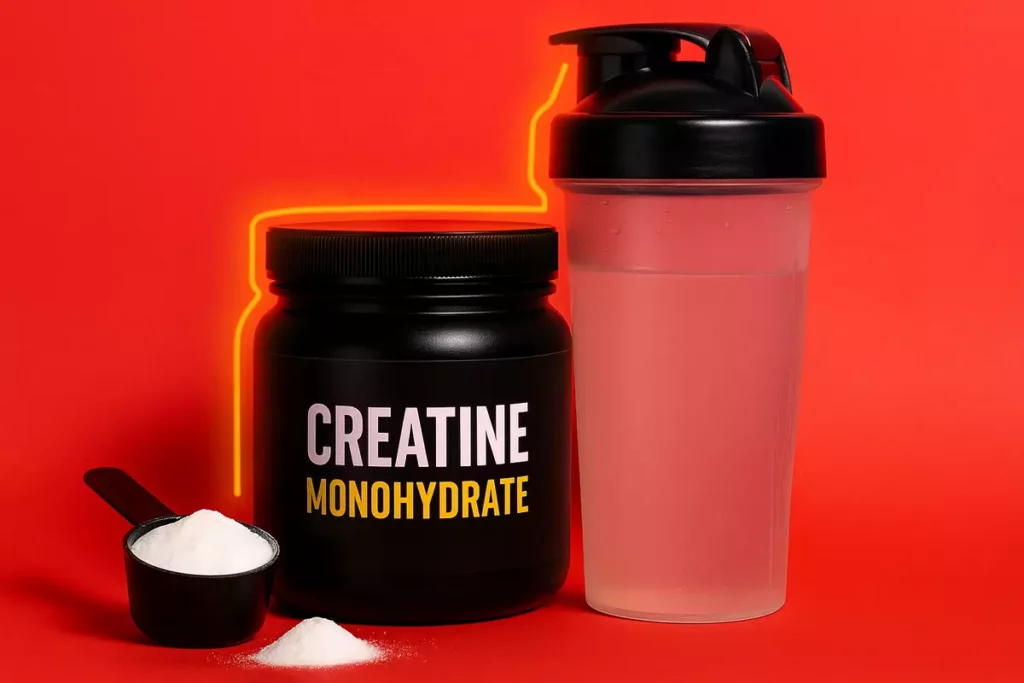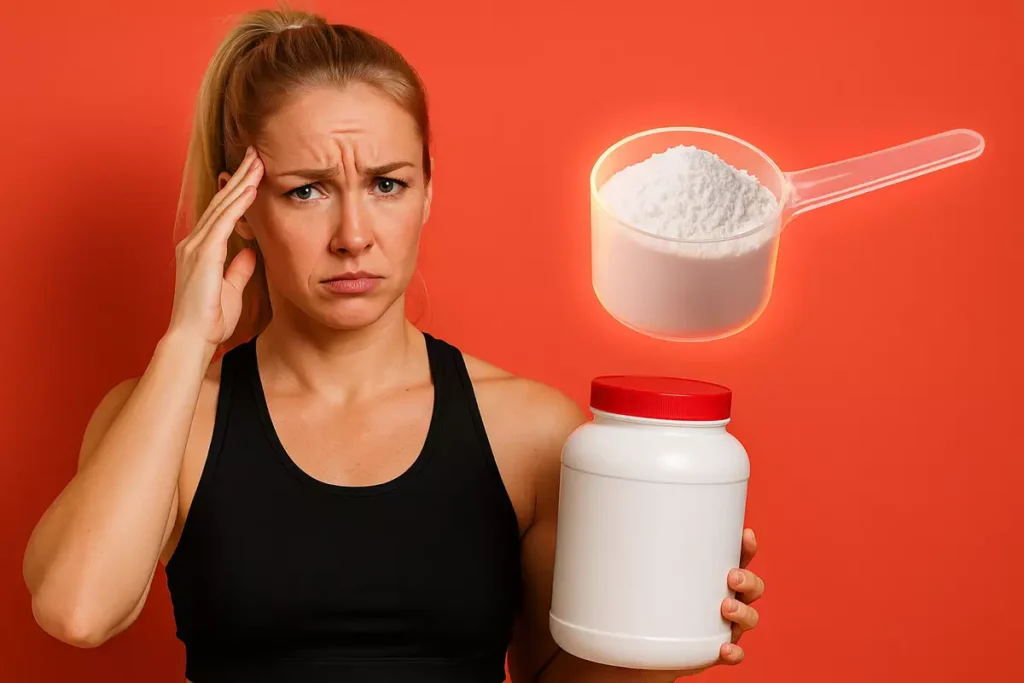Creatine monohydrate is one of the most popular sports supplements in the world. Yet, many athletes still ask: “Is creatine banned?”
The truth is, despite myths and confusion, creatine is completely legal in competitive sports. It’s backed by decades of research and trusted by elite athletes across disciplines.
If you compete, train hard, and want to maximize your performance without breaking the rules, knowing the facts about creatine is essential.
Table of contents
Is Creatine Banned?
Let’s get straight to the point: No, creatine monohydrate is not banned in sports.
It has never appeared on the World Anti-Doping Agency (WADA) prohibited list, and no major sports federation has outlawed its use.
If you’re a competitive athlete, you can safely take creatine without worrying about a positive doping test.
For more on how creatine can fit into your training stack, check out the Beta-Alanine, Creatine, and Caffeine Stack Guide.
Understanding Creatine Monohydrate

Creatine is a naturally occurring compound found in small amounts in foods like red meat and fish.
Your body also produces it, but in smaller quantities than what supplementation can provide.
When taken as a supplement, creatine monohydrate increases your muscles’ phosphocreatine stores. This fuels short bursts of high-intensity activity—perfect for lifting heavier, sprinting faster, and recovering quicker between sets.
You can learn more about proper intake in my Daily Creatine Monohydrate Use Guide.
Official Sports Regulations
I’ve checked anti-doping rules multiple times for myself and for clients.
Creatine has never been flagged by WADA, the IOC, or professional leagues.
That means whether you’re competing in powerlifting, CrossFit, swimming, or football, you’re in the clear.
Why Creatine Is Legal but Controversial

Many athletes still ask me, “Isn’t creatine like a steroid?”
This misconception comes from gym myths and media headlines that lump all performance aids together.
Creatine is nothing like anabolic steroids—it’s a safe, legal, and well-researched supplement. It works by enhancing your body’s natural energy system, not by altering hormones.
If you’re curious about creatine’s hormonal impact, see my Creatine and Testosterone Guide.
Performance Benefits Backed by Science
Creatine is one of the most studied supplements in sports nutrition.
Research consistently shows it can improve strength, power output, and recovery.
In my own training, I noticed my squat and deadlift numbers climb steadily within just four weeks of starting creatine.
I’ve seen similar results in my clients. David, a 24-year-old amateur powerlifter, added 12 kg to his squat in just 8 weeks. Luca, a competitive swimmer, shaved off crucial seconds in his 50-meter sprint after one month of supplementation.
For a detailed comparison of how creatine stacks up against other supplements, read BCAA vs Creatine for Strength and Size.
Possible Side Effects and Safety Notes

The most common side effect is a small weight increase—usually 1 to 2 kg—due to water retention in the muscles.
This is not fat gain; in fact, the fuller muscles often help with power and endurance.
I personally never had digestive issues or cramps while using creatine, but I always recommend drinking plenty of water to avoid any potential discomfort.
If you’re considering taking a break from creatine, here’s what you should know: What Happens When You Stop Taking Creatine.
Best Practices for Athletes Using Creatine
From my experience, you don’t need a complicated loading phase.
Take 3–5 grams daily, preferably after training, and stay consistent.
Pair it with adequate hydration to maximize absorption and muscle benefits.
Many athletes also wonder if they should mix creatine with protein shakes. My advice is in this article: Creatine With Protein Shake or Separate?.
This approach has worked for me and for athletes like Mateo, a 29-year-old CrossFit competitor, who’s been using creatine for multiple seasons without any negative effects.
Final Takeaway for Competitive Athletes
If you’re serious about performance and wondering whether creatine will land you in trouble with anti-doping tests, the answer is clear: It’s 100% legal and safe when used correctly.
In my career as both an athlete and a coach, creatine has been one of the most reliable, well-researched, and competition-friendly supplements out there.
For those in endurance sports, you might also enjoy my article on Creatine for Runners and Endurance Athletes.
If you want a legal edge that boosts power, recovery, and training output—creatine is worth your consideration.



Leave a Reply